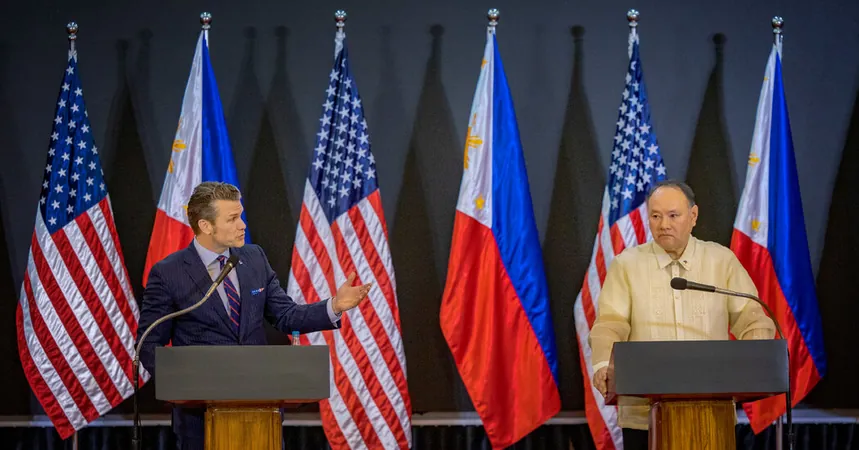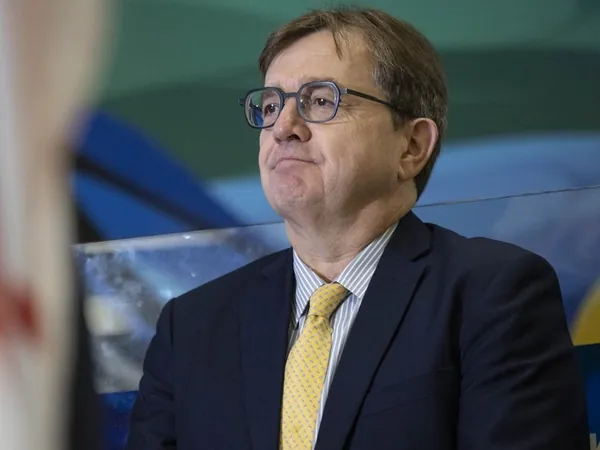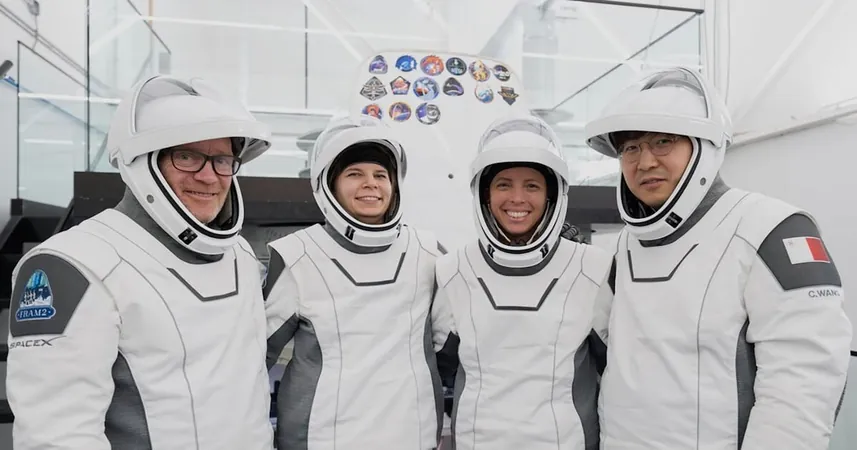
Hegseth's First Official Trip to Asia: A Bold Move to Counter China's Influence
2025-03-28
Author: Jacques
In a significant diplomatic venture, Secretary of Defense Pete Hegseth embarked on his inaugural trip to Asia, aiming to reassure key allies about the unwavering commitment of the United States to deter perceived threats from China. This trip marks a pivotal moment for U.S. foreign policy in the region, which has seen increasing tensions due to China’s expanding territorial ambitions.
During a press conference held in Manila, the capital of the Philippines, Hegseth emphasized the “unprecedented” shift in focus that the Trump administration is making toward this vital region. He proclaimed, “Today, it’s the Philippines. Tomorrow, it’s Japan. This will extend to Australia, South Korea, and other nations across Asia.” His bold assertions aimed at establishing a robust deterrent framework to stave off potential conflict.
The Philippines, Hegseth's first stop, is embroiled in escalating confrontations with China over territorial claims in the South China Sea. Similarly, Japan has been vocal about Chinese incursions in its waters, intensifying the urgency for U.S. support in regional security matters.
In a key meeting with Philippine President Ferdinand Marcos Jr., Hegseth stressed the necessity for deterrence, particularly given the ongoing threats posed by the Chinese Communist Party. He reiterated that both countries face a “common threat” that necessitates enhanced military cooperation and strategy.
Hegseth's trip aims to bolster defense ties, with plans for joint military exercises that will include special operations training in the Batanes islands, only 120 miles from the contentious Taiwan Strait—another flashpoint in U.S.-China relations. He also announced the forthcoming deployment of anti-ship missile systems and unmanned surface vehicles during the U.S.-Philippines military drills scheduled for April.
Amid discussions about military strategy, Hegseth also addressed a recent controversy concerning his disclosure of U.S. military operations via the messaging platform Signal. While attempting to downplay concerns about his responsibility in the matter, he reiterated the effectiveness of the military strikes against Houthi targets in Yemen. He emphasized that tactical decisions regarding the U.S. Seventh Fleet’s maneuvers in Asia were ultimately up to U.S. Admiral Samuel Paparo, who leads the Indo-Pacific Command.
The Philippines, responding to its strategic position in the tussle against Beijing's advances, seeks to deepen alliances with the U.S., a partnership strengthened under the Biden administration. As the region’s geopolitical landscape becomes increasingly fraught, Philippine Defense Secretary Gilberto Teodoro affirmed, “We are facing the overreach of the Communist Party of China, and what is at stake involves our shared security.
With Hegseth's trip, the United States aims to amplify its engagement and assert its commitment to allies in Asia, underscoring the importance of collaboration in the face of mounting Chinese assertiveness. This visit is not just about military alliances; it's a clarion call for unity and strategy against a rising power that is challenging the status quo. Stay tuned as this story develops and further implications of Hegseth’s trip unfold!









 Brasil (PT)
Brasil (PT)
 Canada (EN)
Canada (EN)
 Chile (ES)
Chile (ES)
 Česko (CS)
Česko (CS)
 대한민국 (KO)
대한민국 (KO)
 España (ES)
España (ES)
 France (FR)
France (FR)
 Hong Kong (EN)
Hong Kong (EN)
 Italia (IT)
Italia (IT)
 日本 (JA)
日本 (JA)
 Magyarország (HU)
Magyarország (HU)
 Norge (NO)
Norge (NO)
 Polska (PL)
Polska (PL)
 Schweiz (DE)
Schweiz (DE)
 Singapore (EN)
Singapore (EN)
 Sverige (SV)
Sverige (SV)
 Suomi (FI)
Suomi (FI)
 Türkiye (TR)
Türkiye (TR)
 الإمارات العربية المتحدة (AR)
الإمارات العربية المتحدة (AR)